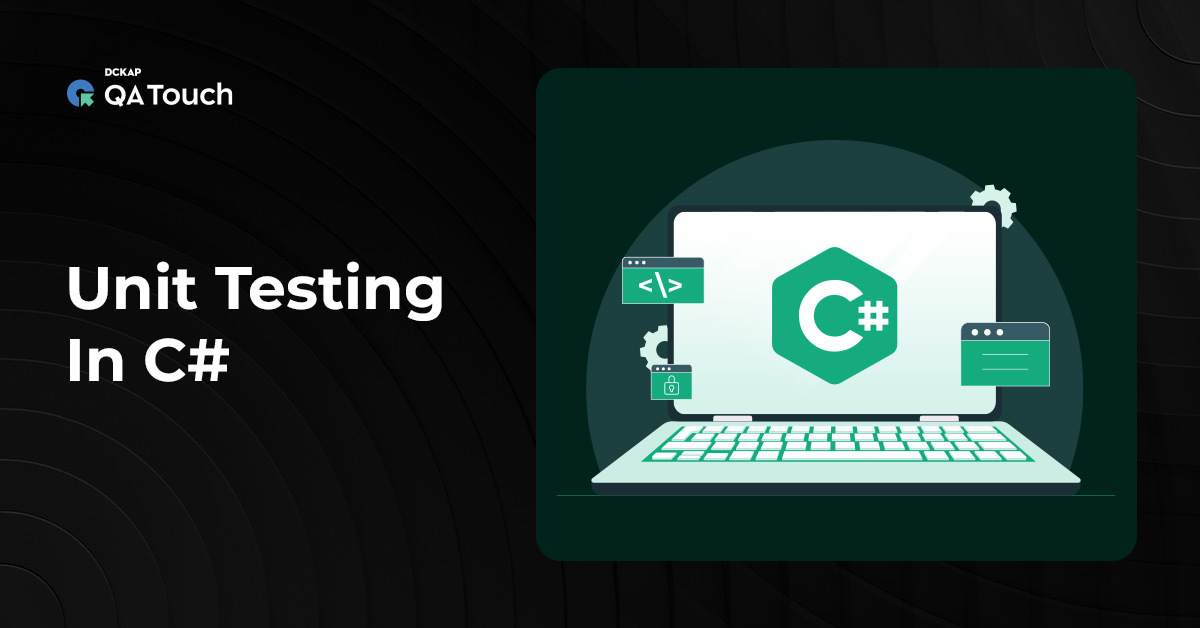BrowserStack is a widely recognized platform for cross-browser testing, offering robust tools to test websites and mobile applications across different browsers and devices. Along with its test automation capabilities, BrowserStack also provides test management software, enabling teams to streamline their testing processes and maintain quality at every stage of development.
However, it may not always meet the specific needs of every team. Based on factors like your project requirements, budget, or desired feature set, other alternatives might be a better fit. To help you explore your options, here’s a detailed guide on the 11 Best BrowserStack Alternatives.
Why you should look for BrowserStack alternatives?
While BrowserStack is a popular choice, it does have some limitations that might prompt you to explore alternatives. Let’s break down a few of the common drawbacks:
- Cost: If you’re working with a small team or managing a startup, you may find BrowserStack’s pricing model quite expensive. As your testing needs grow, the costs can quickly escalate, making it hard to manage within a tight budget.
- Limited Mobile Support: While BrowserStack offers mobile testing, you might find that its performance and pricing don’t fully align with your needs, especially if you’re looking for more comprehensive mobile testing options. For teams focusing heavily on mobile apps, other tools might offer better value or deeper functionality.
- Performance & Speed: If you’re testing more complex scenarios, you may notice that BrowserStack doesn’t always deliver the fastest or most reliable performance. Slow test execution or latency issues can become a frustration, particularly when dealing with intricate test environments.
- Limited Free Options: BrowserStack’s free tier has significant usage limitations. If you’re looking for a more cost-effective or open-source solution with fewer restrictions, you might find yourself exploring other platforms that provide more generous free plans.
Things to look for in BrowserStack alternative

When searching for alternatives to BrowserStack, it’s essential to consider several key factors to ensure you choose a platform that meets your testing needs effectively. Here are the critical points to keep in mind:
1. Affordability
Cost is a significant factor for many teams, especially smaller ones or startups with tight budgets. Look for alternatives that offer competitive pricing plans and a variety of options that can scale with your team’s needs. Some platforms provide more generous free tiers or trial periods, which can help you assess their capabilities without incurring immediate costs.
2. Cross-Browser and Cross-Device Testing
A robust alternative should support comprehensive cross-browser and cross-device testing. Check that the platform allows you to test your applications across a wide range of browsers and devices, ensuring compatibility with the latest versions as well as older ones. The ability to conduct tests on both desktop and mobile environments is essential for a thorough testing strategy.
3. Mobile Testing Support
If mobile applications are part of your project, consider the level of mobile testing support provided. Look for platforms that offer access to real mobile devices, emulators, and simulators, as well as the ability to test across various mobile operating systems. Some alternatives may also provide more advanced mobile testing features, such as geolocation testing or network simulation, which can be crucial for mobile-focused teams.
4. Integration with CI/CD
Seamless integration with your existing CI/CD (Continuous Integration/Continuous Deployment) pipelines is crucial for maintaining an efficient workflow. Ensure the alternative you choose supports integration with popular CI/CD tools like Jenkins, Travis CI, and CircleCI. This capability allows for automated testing within your development process, enabling quicker feedback and faster release cycles.
5. Parallel Testing
Parallel testing capabilities can significantly enhance your testing efficiency by allowing you to run multiple tests simultaneously across different browsers and devices. Look for alternatives that support parallel testing to reduce overall testing time, which can be particularly beneficial for large applications or complex test cases. This feature can help you maintain a quick turnaround in your development cycles.
6. User-Friendliness
The platform’s user interface and overall user experience are vital for ensuring that your team can effectively utilize the tool without extensive training. Look for alternatives that offer an intuitive, easy-to-navigate interface, along with clear documentation and customer support. A user-friendly platform can help streamline the testing process and allow your team to focus on what matters most—delivering high-quality applications.
11 Best BrowserStack Alternatives
 While BrowserStack is renowned for its cross-browser testing capabilities and its integrated test management software, various alternatives cater to specific needs in the testing landscape. In this section, we will explore the best alternatives to BrowserStack, providing a brief overview of each platform.
While BrowserStack is renowned for its cross-browser testing capabilities and its integrated test management software, various alternatives cater to specific needs in the testing landscape. In this section, we will explore the best alternatives to BrowserStack, providing a brief overview of each platform.
1. QA Touch
QA Touch is a comprehensive test management tool that streamlines the entire testing process. It allows you to create, manage, and execute test cases seamlessly, making it a great option for teams looking for enhanced collaboration and reporting capabilities.
Key Features:
- Customizable test case management
- Integration with tools like JIRA and Slack
- Real-time reporting and analytics
Pros:
- User-friendly interface that simplifies navigation
- Strong collaboration features enhance team communication
- Affordable pricing model suitable for small teams
Cons:
- Limited mobile testing capabilities compared to some competitors
- Some advanced features may require additional training
- Occasional bugs in the reporting module
Pricing: Free trial available; Paid pricing starts at $31/month
2. Browserling
Browserling offers live testing capabilities on real browsers, allowing you to debug and test your web applications quickly. It’s an intuitive platform that requires no setup, making it a convenient option for developers needing fast results.
Key Features:
- Live testing on real browsers
- Visual debugging tools
- Screenshot capabilities for documentation
Pros:
- Fast and straightforward setup process
- User-friendly interface that’s easy to navigate
- Excellent for quick visual debugging
Cons:
- Limited automation features for comprehensive testing
- Advanced features may require a paid subscription
- The selection of browsers is not as extensive as BrowserStack’s
Pricing: Starts at $19/month
3. Appium
Appium is a widely-used open-source tool for mobile application testing. It allows you to write tests for both Android and iOS applications using various programming languages, providing flexibility for mobile developers.
Key Features:
- Supports automation for Android and iOS
- Multiple programming language compatibility
- Strong community support
Pros:
- Free and open-source, reducing costs significantly
- Highly flexible with extensive documentation available
- A robust community offering support and resources
Cons:
- Requires programming knowledge for effective use
- Initial setup can be complex and time-consuming
- May not integrate seamlessly with all CI/CD tools
Pricing: Free to use
4. Global App Testing
Global App Testing connects you with real testers from around the world, providing valuable insights into user experiences with your applications. This service is ideal for teams looking to identify real-world usability issues that automated testing might overlook.
Key Features:
- Access to real testers for authentic feedback
- Quick turnaround times for testing
- Detailed reporting features
Pros:
- Real user feedback provides deeper insights
- Fast testing turnaround, often within hours
- Comprehensive testing across various devices
Cons:
- Pricing can be higher compared to traditional tools
- Limited automation capabilities available
- Relies heavily on the availability of human testers
Pricing: Custom pricing based on your testing needs
5. Sauce Labs
Sauce Labs is a robust platform for automated and live testing across multiple browsers and devices. Its extensive integrations and reporting capabilities make it an excellent choice for teams looking to scale their testing efforts efficiently.
Key Features:
- Cross-browser and cross-device testing
- Integration with CI/CD tools
- Options for live testing and automated testing
Pros:
- Extensive selection of devices and browsers available
- Excellent reporting and analytics features
- Strong integration with CI/CD workflows
Cons:
- Higher pricing may be a barrier for smaller teams
- Some users experience performance issues during live testing
- A learning curve may be present for new users
Pricing: Starts at $39/month
6. Applitools
Applitools is a visual testing platform that utilizes AI to ensure your application’s visual elements render correctly across various devices and browsers. This focus on visual fidelity differentiates it from traditional testing tools.
Key Features:
- AI-driven visual testing capabilities
- Cross-browser compatibility checks
- Integration with multiple testing frameworks
Pros:
- Effectively catches visual bugs that other tools might miss
- Fast setup and an intuitive dashboard
- Good integration with existing test automation tools
Cons:
- Primarily focused on visual testing, limiting its use for functional testing
- Higher pricing can be a concern for some teams
- Learning curve involved in fully utilizing its features
Pricing: Custom pricing based on usage
7. Headspin
Headspin is tailored for mobile application performance testing, offering access to real devices for more authentic user experience testing. It helps you optimize the performance of your mobile apps effectively.
Key Features:
- Real device access for mobile testing
- Performance monitoring tools
- Detailed analytics and reporting
Pros:
- Provides deep insights into mobile performance
- Tests applications under real-world conditions
- Excellent customer support and comprehensive documentation
Cons:
- Higher pricing compared to other testing tools
- Setup can be complex and time-consuming
- Limited support for web testing compared to mobile testing
Pricing: Custom pricing based on usage
8. Datadog
While Datadog is primarily a monitoring tool, it can integrate with your testing workflows to provide performance insights into your applications. It helps you monitor application performance in real-time, complementing your testing efforts.
Key Features:
- Comprehensive application performance monitoring
- Real-time analytics and reporting
- Integration with various development tools
Pros:
- Excellent visualization and reporting features
- Comprehensive monitoring across applications and infrastructure
- Strong integration capabilities
Cons:
- Not a dedicated testing tool; additional setup may be required
- Higher pricing for advanced features
- Complexity for users primarily focused on testing
Pricing: Starts at $15/host/month
9. Katalon
Katalon offers an all-in-one testing solution that supports web, mobile, API, and desktop testing. It features a rich set of functionalities, allowing teams to manage testing efforts from a single platform easily.
Key Features:
- Supports multiple testing types
- Integrated test management capabilities
- Easy-to-use interface suitable for all skill levels
Pros:
- Versatile tool ideal for various testing needs
- Strong automation support
- Affordable pricing for small to medium-sized teams
Cons:
- Performance issues reported with larger test suites
- Some advanced features may require training
- Limited community support compared to open-source alternatives
Pricing: Starts at $218/user/month
10. Testsigma
Testsigma is a cloud-based test automation tool that emphasizes collaboration and simplicity. It combines manual and automated testing into a single platform, enabling teams to work together effectively on their testing efforts.
Key Features:
- Unified platform for manual and automated testing
- Collaboration-focused with easy test case management
- Real-time reporting and analytics
Pros:
- User-friendly interface simplifies testing processes
- Strong collaboration features promote teamwork
- Flexible pricing options for different team sizes
Cons:
- Limited automation capabilities compared to dedicated tools
- Some users report bugs in the interface
- May not support all frameworks and languages
Pricing: Request for pricing
11. LambdaTest
LambdaTest offers a cloud-based platform for cross-browser testing and automated testing. It provides access to a wide range of browsers and operating systems, making it a great alternative for testing your applications in different environments.
Key Features:
- Real-time and automated cross-browser testing
- Integrations with CI/CD tools
- Screenshot testing and responsive testing capabilities
Pros:
- Large browser and OS combination for comprehensive testing
- User-friendly interface with a simple setup process
- Competitive pricing for both small and large teams
Cons:
- Some users report performance issues with live testing
- Limited mobile device testing compared to competitors
- Advanced features may require additional costs
Pricing: Starts at $15/month
Comparison between BrowserStack Competitors
When exploring alternatives to BrowserStack, it’s essential to understand how each competitor stacks up in terms of features, usability, and pricing. This comparison will highlight the strengths and weaknesses of various testing tools, helping you identify the best fit for your testing needs.
| Platforms | Testing Type | Third-party Integrations | Free Trial | Supports Testing Frameworks |
| QA Touch | Supports Manual testing | Available | Available | Yes |
| Appium | Code-based | Available | Free & Open-source | Yes |
| Global App Testing | Manual/Exploratory | Available | Custom Pricing (No Trial) | Yes |
| Sauce Labs | Code-based | Available | Available | Yes |
| Applitools | Visual AI Testing | Available | Free tier available | Yes |
| HeadSpin | Code-based | Available | Custom Pricing (No Trial) | Yes |
| Datadog | Synthetic Browser Tests | Available | Available | Yes |
| Katalon | Code-based & Codeless | Available | Free version available | Yes |
| Testsigma | Codeless (AI-driven) | Available | Free tier available | Yes |
| LambdaTest | Code-based | Available | Free tier available | Yes |
Final Thoughts
Selecting the right alternative to BrowserStack is crucial for optimizing your testing processes and ensuring seamless application performance across various platforms. Each tool presents unique features and benefits tailored to specific testing needs.
QA Touch is a comprehensive test management platform, offering user-friendly interfaces and robust integrations with popular project management tools. By streamlining your testing workflows and enhancing collaboration among team members, QA Touch can significantly improve the quality of your software while fitting within your budget.
Ready to streamline your testing process? So start your 14-day free trial today!











